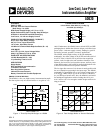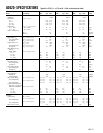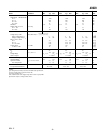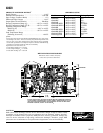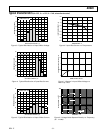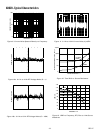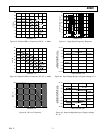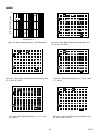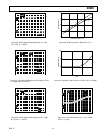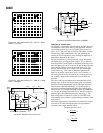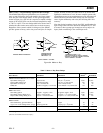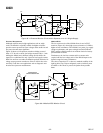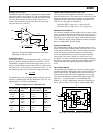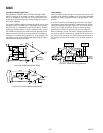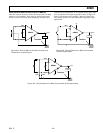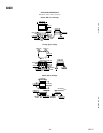
AD620
REV. E
–14–
COMMON-MODE REJECTION
Instrumentation amplifiers like the AD620 offer high CMR,
which is a measure of the change in output voltage when both
inputs are changed by equal amounts. These specifications are
usually given for a full-range input voltage change and a speci-
fied source imbalance.
For optimal CMR the reference terminal should be tied to a low
impedance point, and differences in capacitance and resistance
should be kept to a minimum between the two inputs. In many
applications shielded cables are used to minimize noise, and for
best CMR over frequency the shield should be properly driven.
Figures 39 and 40 show active data guards that are configured
to improve ac common-mode rejections by “bootstrapping” the
capacitances of input cable shields, thus minimizing the capaci-
tance mismatch between the inputs.
REFERENCE
V
OUT
AD620
100⍀
100⍀
– INPUT
+ INPUT
AD648
R
G
–V
S
+V
S
–V
S
Figure 39. Differential Shield Driver
100⍀
– INPUT
+ INPUT
REFERENCE
V
OUT
AD620
–V
S
+V
S
2
R
G
2
R
G
AD548
Figure 40. Common-Mode Shield Driver
GROUNDING
Since the AD620 output voltage is developed with respect to the
potential on the reference terminal, it can solve many grounding
problems by simply tying the REF pin to the appropriate “local
ground.”
In order to isolate low level analog signals from a noisy digital
environment, many data-acquisition components have separate
analog and digital ground pins (Figure 41). It would be conve-
nient to use a single ground line; however, current through
ground wires and PC runs of the circuit card can cause hun-
dreds of millivolts of error. Therefore, separate ground returns
should be provided to minimize the current flow from the sensi-
tive points to the system ground. These ground returns must be
tied together at some point, usually best at the ADC package as
shown.
DIGITAL P.S.
+5VC
ANALOG P.S.
+15V C –15V
AD574A
DIGITAL
DATA
OUTPUT
+
1
F
AD620
0.1F
AD585
S/H
ADC
0.1F
1
F
1
F
Figure 41. Basic Grounding Practice



